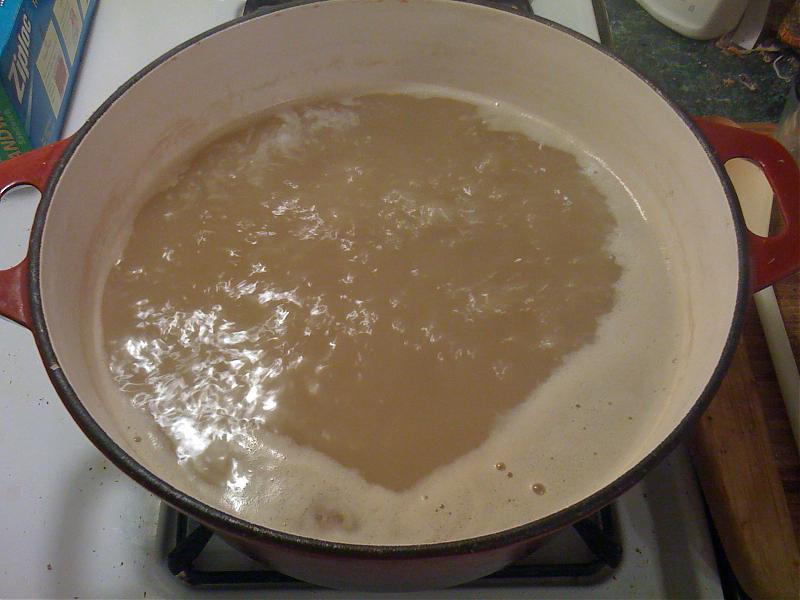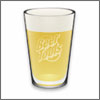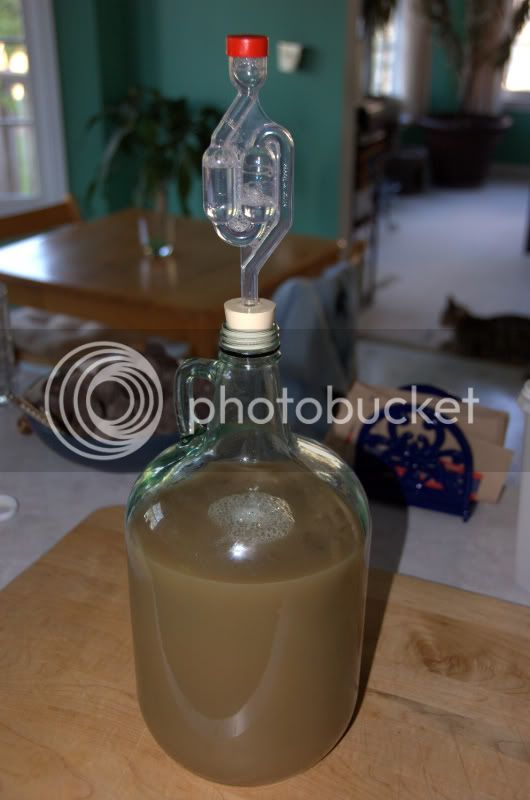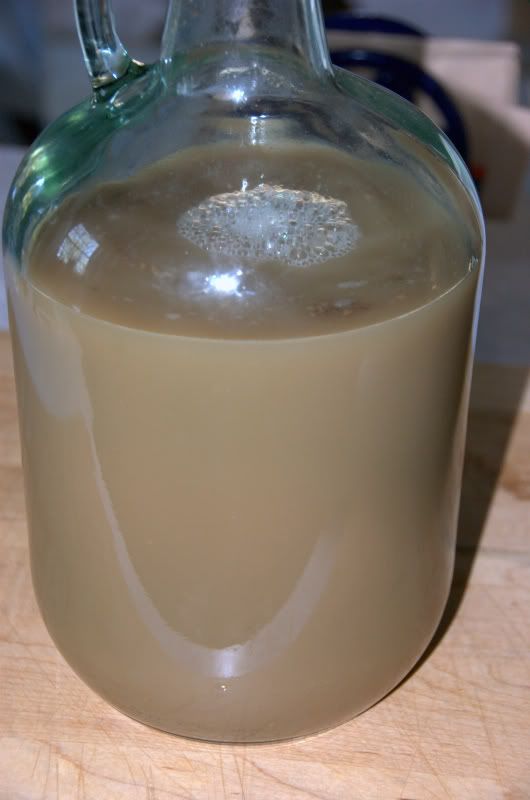eriktlupus
Well-Known Member
no but now that i've seen it i might

In England in the middle ages, particularly before the Plague (which first reached England in 1348), the most common drink of the day was ale. Ale, during this time, was a drink made from malted grains, water, and fermented with yeast. Malted grain would be crushed; boiling (or at least very hot) water would be added and the mixture allowed to work; finally the liquid was drained off, cooled and fermented. The ale might have been spiced, but it would not have had hops as an ingredient.
Beer, on the other hand, was made from malted grains, water, hops, and fermented with yeast. Hops added a measure of bitterness to the beer, and also helped preserve it. We will see below that the successful addition of hops required a change in the process that had a profound effect on the resulting product: after the liquid was drained off, it was boiled again with the hops.
Subscribed.
This is a subject near and dear to me. part of my "brewing archeology" fascination.
How bout we call it a little of both.Technically wouldn't this be considered as beer anthropology??? I mean you're talking about the evolution of human culture and their lives, not physical relics. Ok....sorry 'bout the semantic argument.










They didn't know what yeast was back then, so including that in the list of ingredients is a bit odd. Not only that, but if they didn't boil the wort, it would surely be packed with lactobacillus, which would give them more of a sour ale.
This is interesting stuff. I may have to try a sour medieval ale.

I figured they would just dump on old cakes and repitch sludge, but they didn't know what it was or why it worked...like you said, A MIRACLE!
Isn't malted barley always crawling with lactobacillus? Even if you had a good pitching rate of yeast, I'd think it would finish the beer and then the lacto would take over and start souring. That's what makes me think that, traditionally, many of these ales were sour, although if they were enjoyed young I understand why they wouldn't be sour yet.
I'm sure there were a very wide variety of ales. I want to try something like this...maybe a wheat wine type ale with a lacto culture pitched after the yeast do their job. sort of a medieval berliner-weisse.
Didn't add yeast to the purity law till the 1800's.Good experiment ,but it sounds pretty nasty and unsanitary to me.I'll stick with beer
I don't know, something survives. You ever leave the grains in the tun for a day or two after brewing?!
Did this last week for a couple days, man was it rank, sparged it just to see what came out and, it tasted kinda like sourdour biscuits, mmmm, mmmm, good!

You drank it!? Go buy a lottery ticket since you aren't dead!
So there is another thread about overanalyzing beer practices based on supposed simple methods of ancient brewers and it got me thinking. Then FlyAngler pops in and shows me this thread. So I decided I would like to give this a go.
Here is my idea. I want to do a no chill brew and let it ferment outside, where there is no temperature control. I will essentially be doing a normal brew process though, except I will just be doing my best guess at temps for mash and whatnot. I think I will smoke the grains in my grill first as well, this idea was mentioned earlier and I thought it was interesting. Anyone have any other ideas that I could add to this?
No, I'm not particularly going for a historic recipe. Mostly I would just like to make a batch that doesn't use a lot of technology...sort of how I assume they must have done it. The beer will stay on my porch until it is bottled. My Porch is blocked off well from the wind, it's kind of cave-ish. My main intentions:
Ferment outdoors, at the will of the weather.
No Chill, outdoors, they likely didn't have wort chillers back then.
I won't measure anything temperature wise...just kind of go by my own judgement.
I have been having trouble coming up with a recipe. If anyone can help me design a batch that would be somewhat time appropriate that would be cool as well. I was thinking a noble hop would be perfect, no American hops. I can't do All-Grain at my place, so it will have to be extract. I liked your oaty/wheaty/barley thought. I think I'd like to just use steeping grains however. And due to a massive 20 gallon infection last weekend I may push this recipe back behind others since that 20 gallons was supposed to cure the pipeline lag...If i can sneak it in I will, but an experimental batch isn't as important as filling the pipeline for football season.

Here's my scaled-down recipe, assuming a 30 minute boil. This gets me close to the percentages indicated in my first post; I just need to get the oat malt. Northern Brewer and Brewer's Warehouse both stock it.
[size=+2]Medieval Ale (Experimental)[/size]
[size=+1]23-A Specialty Beer[/size]
Author: Jason Konopinski
Date: 2/4/09

Size: 1.0 gal
Efficiency: 80%
Attenuation: 75.0%
Calories: 193.77 kcal per 12.0 fl oz
Original Gravity: 1.058 (1.026 - 1.120)
|=============#==================|
Terminal Gravity: 1.015 (0.995 - 1.035)
|===============#================|
Color: 4.76 (1.0 - 50.0)
|=========#======================|
Alcohol: 5.73% (2.5% - 14.5%)
|============#===================|
Bitterness: 0.0 (0.0 - 100.0)
|=======#========================|
[size=+1]Ingredients:[/size]
6 oz Maris Otter Pale Ale Malt
1.5 lb Oat Malt
6 oz Wheat Malt
.5 ea Fermentis S-04 Safale S-04
[size=+1]Schedule:[/size]
00:03:00 Mash-In - Liquor: 0.7 gal; Strike: 164.59 °F; Target: 152 °F
00:30:00 Sacc Rest - Rest: 30 min; Final: 150.0 °F
00:33:00 Sparge - Sparge: 1.0 gal sparge @ 180 °F, 0.0 min; Total Runoff: 1.47 gal
[size=-1]Results generated by BeerTools Pro 1.5.2[/size]



Regardless, it'll have been a good experiment, something I think we need more of in this community.